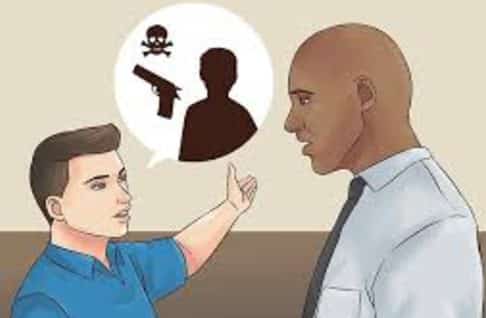What to Tell Students If a School Shooting Occurs Nearby
A whole generation of children is growing up without watching or knowing about “Mr. Rogers Neighborhood.” Yes, there’s an animated series called “Daniel Tiger.” Trying to take the lessons and apply them to a new generation, however, it doesn’t come close. It’s a different time. Fred Rogers never had to talk about Sandy Hook, Columbine, or the September 11th terrorist attack. Some might say his show wouldn’t work today. Meanwhile, we have a generation of children who are becoming numb to the ongoing school shootings and violence that are reported weekly and daily.
But the best neighbor any of us ever had had this to say. And it speaks volumes whenever a catastrophe occurs, to give our children hope:
“Always look for the Helpers. There will always be helpers.”
-Fred Rogers
Parents and teachers, every time there is a tragedy, try to show students that there are, indeed, good people. Caring individuals. That way there is still HOPE.
Yet, we all struggle to understand the unending streak of school violence many children are experiencing intense sadness, anger, fear-and perhaps guilt.
As an authority on school violence, I would recommend the following four Dos and Don’ts following a violent occurrence at school or in your community.
1. DON’T PANIC.
Panicking can cloud your judgment, leading you to say or do things that may further upset or scare your child or student. It’s crucial to approach the situation with a calm and collected demeanor. Be upfront and honest with them, addressing their questions and concerns truthfully but with sensitivity. Take deep breaths to steady yourself, and remember, it’s perfectly okay to say, “I don’t know.” This honesty fosters trust and reassures them that it’s normal to not have all the answers immediately.
2. DON’T expect you’ll have all the answers.
It’s important to recognize that you won’t have all the answers, and that’s okay. The most effective way to communicate is by listening first. Allow your child or student to express what they are feeling and try to understand their perspective. Encourage them to ask any questions, even the difficult or unanswerable ones. This process helps them to cope with the “why” that often accompanies tragic events. By showing empathy and understanding, you provide them with a safe space to share their fears and uncertainties.
3. DON’T present yourself as the all-knowing adult.
Children and students can sense when you’re not being genuine. Rather than presenting yourself as an all-knowing adult, acknowledge that there are no quick fixes or easy answers. Take the time to learn and understand all the facts before forming a judgment about what happened. This approach not only sets a good example but also helps in providing accurate information and fostering a more meaningful dialogue. It’s important to demonstrate that it’s okay to seek out answers together, reinforcing the value of learning and understanding over simply having immediate responses.
4. DON’T force a conversation
Children are perceptive and often know when they are ready to talk about something difficult. Forcing a conversation before they are comfortable can be counterproductive. Instead, let them know that you are available and willing to listen whenever they feel ready to talk. Create an environment of trust and openness, assuring them that their thoughts and feelings are valid and important. As parents and teachers, you must communicate that you are dedicated to making school safer. This reassurance can help them feel more secure and supported, knowing that their well-being is your priority.

